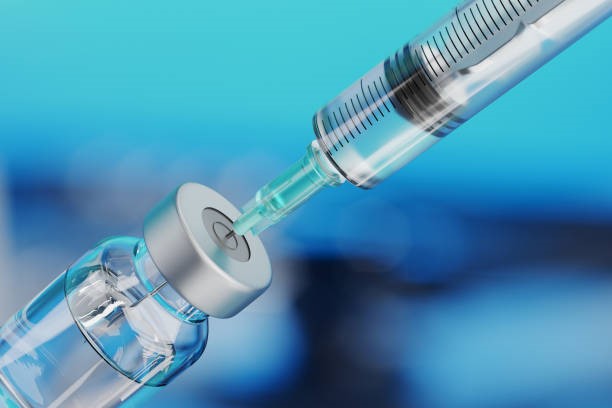Reproductive Health
Beyond Condoms: Exploring Effective Safe Sex Practices
Maintaining effective safe sex practices is not only crucial for preventing sexually transmitted infections (STIs) but also for avoiding unintended pregnancies. This proactive approach to sexual health ensures a fulfilling and satisfying sexual life while prioritizing overall well-being.
1. Condoms: The Gold Standard
Condoms have long stood as the gold standard for protection against both STIs and unwanted pregnancies. When used correctly and consistently, they provide a highly effective barrier that significantly reduces the risk of transmission. It’s imperative to choose high-quality condoms made of latex or polyurethane, and to store them properly to maintain their efficacy. By prioritizing the use of condoms, you take a tangible step towards safeguarding your sexual health.
2. Understanding STIs
Knowledge serves as the cornerstone of sexual health. It’s essential to invest time in educating oneself about common sexually transmitted infections (STIs), familiarizing oneself with their symptoms, and understanding the various modes of transmission. Regular testing, open and honest communication with sexual partners, and seeking prompt medical attention if an infection is suspected are all vital steps in ensuring the ongoing health of oneself and one’s partners. Remember, being well-informed empowers individuals to make decisions that place a premium on their own well-being, as well as that of their partners. This knowledge equips them with the tools needed to navigate their sexual lives with confidence and responsibility.
3. Contraceptive Options
Selecting the right contraceptive method is a crucial component of sexual health. With a wide range of options available, including birth control pills, intrauterine devices (IUDs), hormonal injections, and implants, it’s essential to engage in a thoughtful discussion with your healthcare provider. They can offer invaluable guidance based on your specific needs and circumstances. This consultation serves as an opportunity to explore and select the contraceptive method that aligns best with your lifestyle, preferences, and health considerations. Remember, engaging in an open and informed conversation with your healthcare provider empowers you to make choices that prioritize your overall well-being.
4. Dual Protection
Embracing dual protection involves combining the use of condoms with other contraceptive methods, offering a comprehensive approach to sexual safety. This strategy not only works to prevent unplanned pregnancies but also provides an additional layer of defense against sexually transmitted infections (STIs). Condoms serve as a physical barrier, reducing the risk of STIs, while other contraception methods like birth control pills, patches, or intrauterine devices (IUDs) primarily focus on preventing pregnancy. By incorporating both strategies, couples demonstrate a proactive commitment to their sexual health and safety. This approach reflects a thoughtful and responsible way to enjoy intimacy while placing a premium on overall well-being.

5. Regular Testing
Routine STI testing stands as a crucial pillar of maintaining sexual health, even within the context of a monogamous relationship. Many infections can manifest without any visible symptoms, making regular testing the only way to confidently ascertain your current status. Confidential testing services can be sought from a healthcare professional or a specialized clinic. This proactive approach to sexual health ensures that you and your partner(s) can engage in intimacy with the peace of mind that comes from knowing you are prioritizing your collective well-being.
6. Vaccinations
Vaccinations, such as the HPV vaccine, provide an additional layer of defense against specific types of sexually transmitted infections (STIs). Engaging in a conversation with your healthcare provider about which vaccines may be advisable for you, taking into account factors like your age, sexual history, and overall health, is an important step. This proactive measure not only safeguards your individual health but also contributes to the broader effort in preventing the spread of STIs within the community.
7. Emergency Contraception
In situations where unprotected sex occurs or contraception methods fail, emergency contraception serves as a crucial option. Its effectiveness is highest when taken promptly after the incident, underscoring the importance of swift action in such circumstances. This option provides a valuable safety net for individuals, offering them an opportunity to take control of their reproductive health even in unexpected situations.
8. Regular Gynecological Exams
Preventive gynecological care is essential to overall reproductive health. These consultations are essential for the early identification and treatment of any possible problems, guaranteeing that you get the best possible care. They provide you confidence and peace of mind regarding the health of your reproductive system because you are actively preserving your general well-being. These tests are an expression of your devotion to putting your reproductive health first and your own well-being first.
Prioritizing safe sex practices is a fundamental aspect of a fulfilling and healthy sexual life. For those who are sexually active, understanding and implementing reliable methods of protection, along with open and honest communication with your partner, can lead to a more satisfying and worry-free intimate experience. It’s about taking charge of your sexual well-being, ensuring that both you and your partner feel comfortable, respected, and safe. Remember, your sexual health is an important part of your overall well-being, and it’s perfectly okay to prioritize it.


